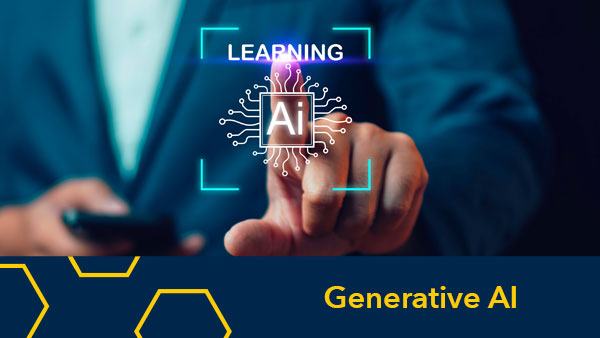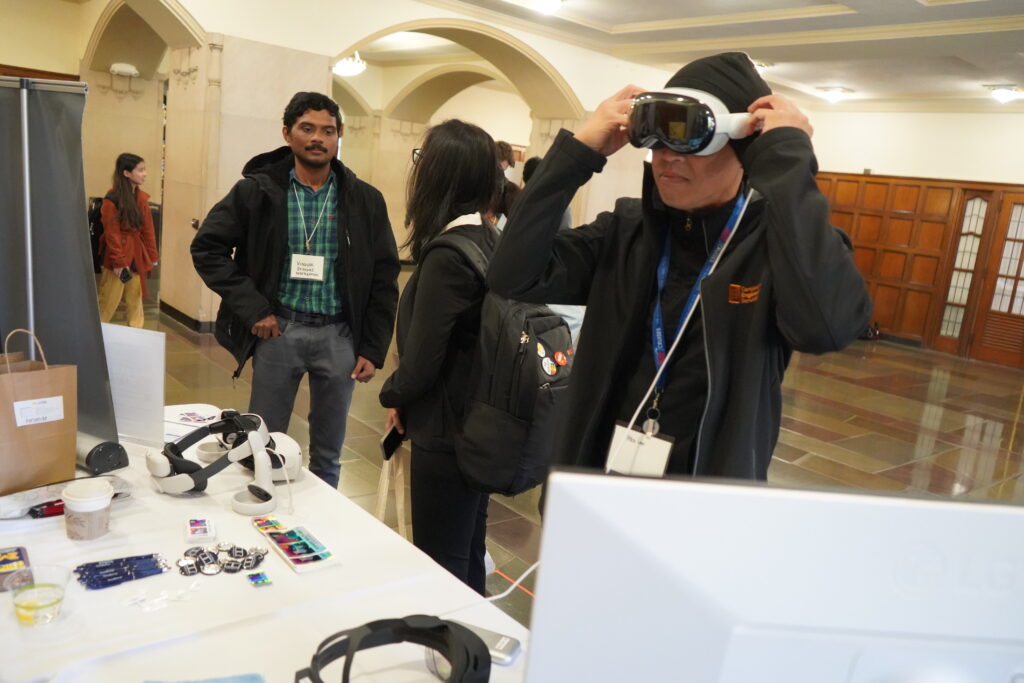
CAI’s Innovation Summit showcased how experiential technologies are helping students, instructors, global learners, and professionals
Sean Corp, Communications Lead
Experiential technologies are being used to engage, inspire, inform, educate, and reflect the values of the people using them, and the “XR, Generative AI, and the Future of Experiential Technologies Summit” showcased how the University of Michigan is leading the way in embracing these technologies.
The Innovation Summit, hosted by the Center for Academic Innovation and held at the Michigan League for two days on Oct. 16-17, featured experiential technology vendors, a student showcase of XR experiences, and some of the chief innovators throughout U-M, including U-M-Flint and Michigan Medicine.
“We’re all evolving. We all need to keep evolving. As the technology evolves, we need to evolve as well,” said Alton Glass, the founder of GRX Immersive Labs and the keynote speaker on day one of the summit. GRX is a multimedia studio that uses immersive technologies to inspire and educate. Glass discussed his journey from filmmaker to creative technologist and educator. He encouraged everyone to embrace change and learn how new technologies can help them fulfill their personal and professional missions.
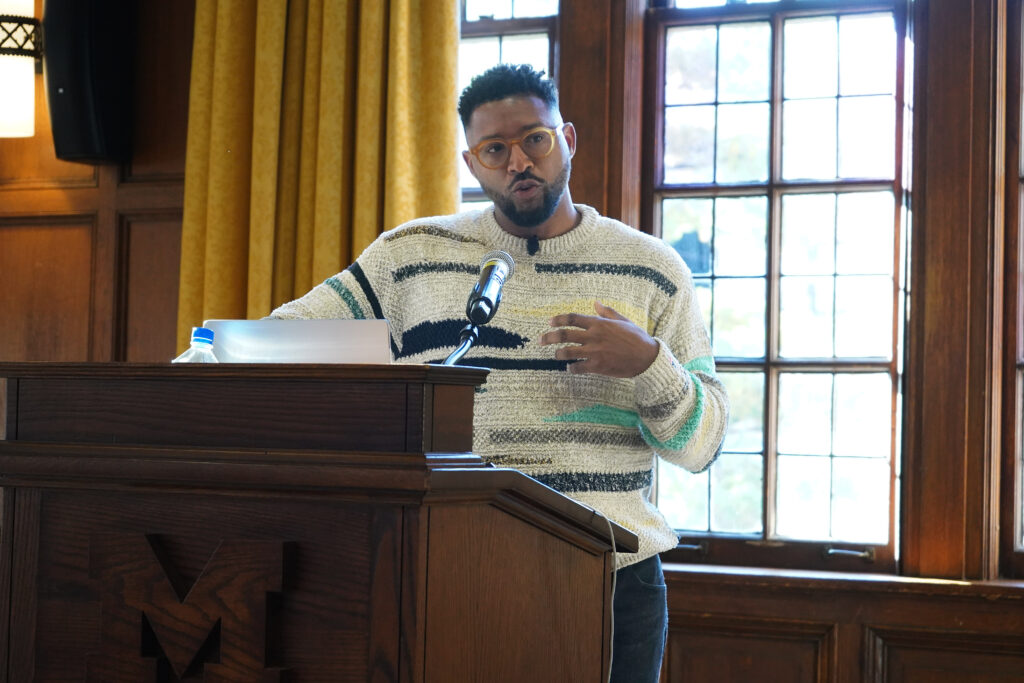
For two days, panelists showcased how they were doing just that. Leaders from UM-Flint highlighted how the school was building AI tools to best serve its students, both in providing information about student services and course content.
“We are all hearing about how there are professions that don’t exist in the era of genAI. We are asking ourselves, how we can create learning experiences that don’t yet exist,” said Nick Gaspar, director of distance learning at UM-Flint and adjunct lecturer of nursing.
Beyond residential students, faculty discussed how they were teaching global learners essential AI skills in open online courses that could be critical to succeed in future professional roles. There were also discussions of legal considerations of generative AI and how various governments are responding to the rapidly evolving technology.
Another panel featured leaders at Michigan Medicine and the School of Nursing discussing how AI was playing a role in education, training programs, and patient care by improving diagnostics and eliminating errors.
“GenAI not only enhances learning but also streamlines diagnostics and treatment, addressing critical shortages in the healthcare workforce,” said Deb Lee, director of the Clinical Learning Center at School of Nursing.
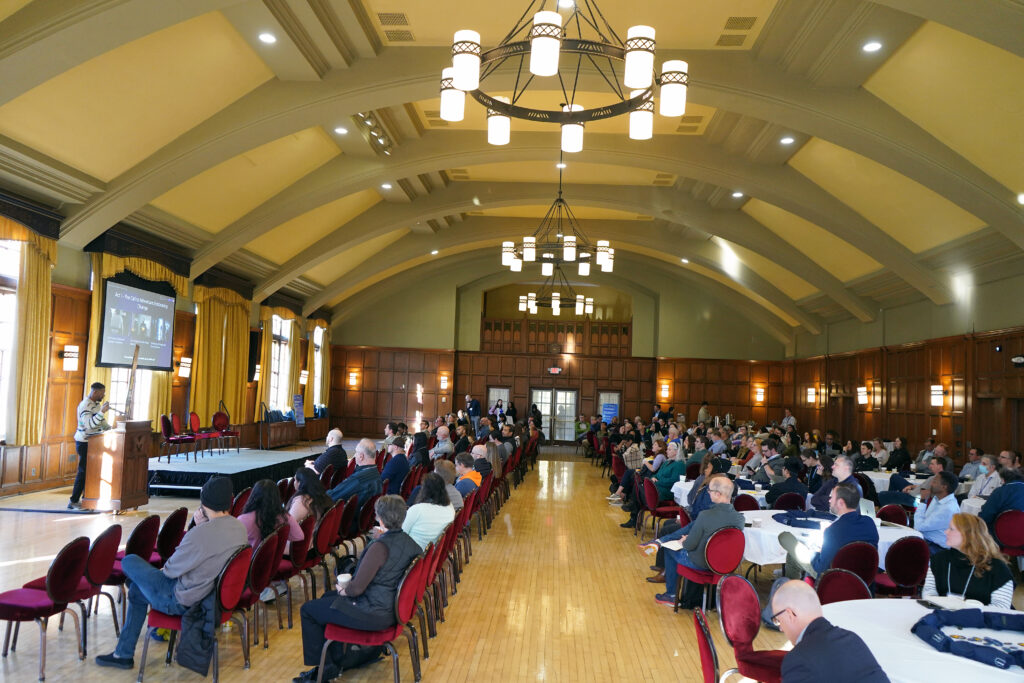
There were also glimpses of the future. Mustafa Furniturewala, Coursera’s chief technology officer, discussed how generative AI is reshaping online learning and included data from Coursera’s integration of several AI tools into the learning experience. Furniturewala, keynote speaker of the second day of the summit, highlighted tools that improved personalized learning and increased learner engagement and satisfaction because of AI integration into courses.
Kevyn Collins-Thompson discussed the development of Learning Clues, an AI-powered tool that was helping to increase student comprehension and engagement. Collins-Thompson highlighted AI’s ability to address what students were looking for most — help summarizing and contextualizing course materials. He also discussed future integrations that would make it a seamless experience for both instructors and students at U-M and beyond. Michael Nebeling, associate professor of information, led a forward-thinking discussion with colleagues at the School of Information and College of Engineering about the transformative power of extended reality and insights into the future of immersive learning.
The Creative Studios multimedia team at the Center for Academic Innovation also discussed their experience designing learning experiences using virtual production and XR integrations in online course development. “The task is big, and the challenges are many, but the power of the experiences, and the thoughtful way we are developing them with the learner in mind has been so rewarding,” said Jeff Butler, media design and production lead at the center.
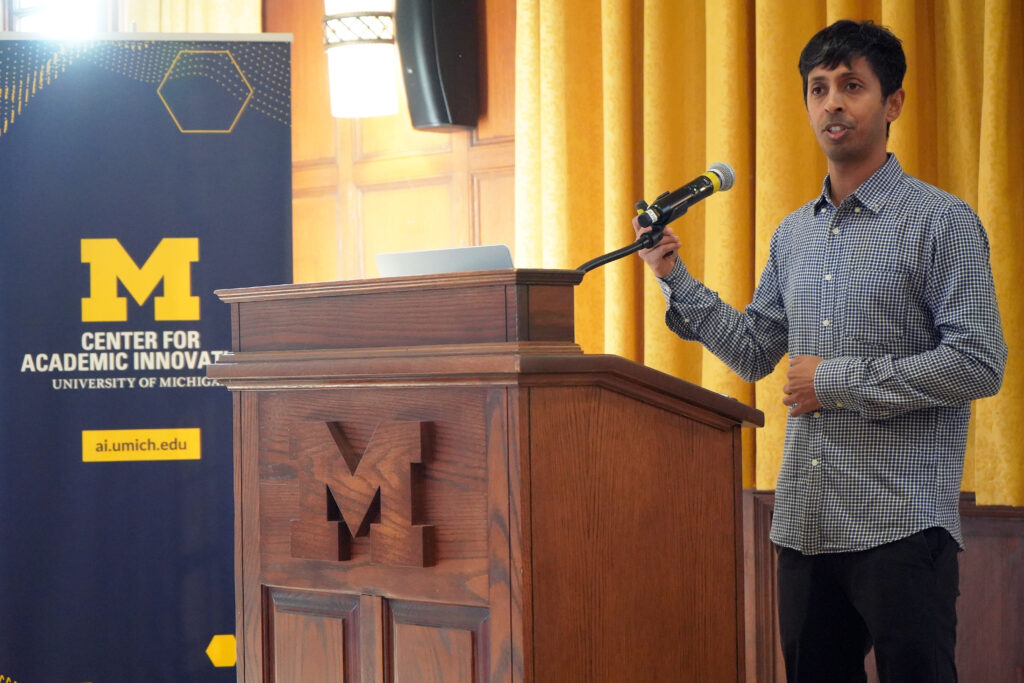
“Whether it is a virtual production stage, an XR experience using a headset, or AI tools to create personalized learning, it is about the intersection of technology and human creativity,” said Jeremy Nelson, senior director of creative studios at the center, who helps lead both media and XR production.
“It’s not just about adopting new tools, it is about reimagining the entire educational experience,” Nelson said. “It’s about understanding what these tools allow us to do to make education more engaging, effective, and inclusive.”
Faculty interested in proposing projects on using generative AI to push the boundaries of teaching and learning, creating open online courses that explore the application of AI in an evolving professional landscape, or online courses that leverage AI skills, or pioneering innovative applications of the Apple Vision Pro to transform higher education are encouraged to explore the open calls for proposals. The center is also available for drop-in information sessions and consultations throughout the proposal process. You can learn more on the center’s Innovation Fund page.


